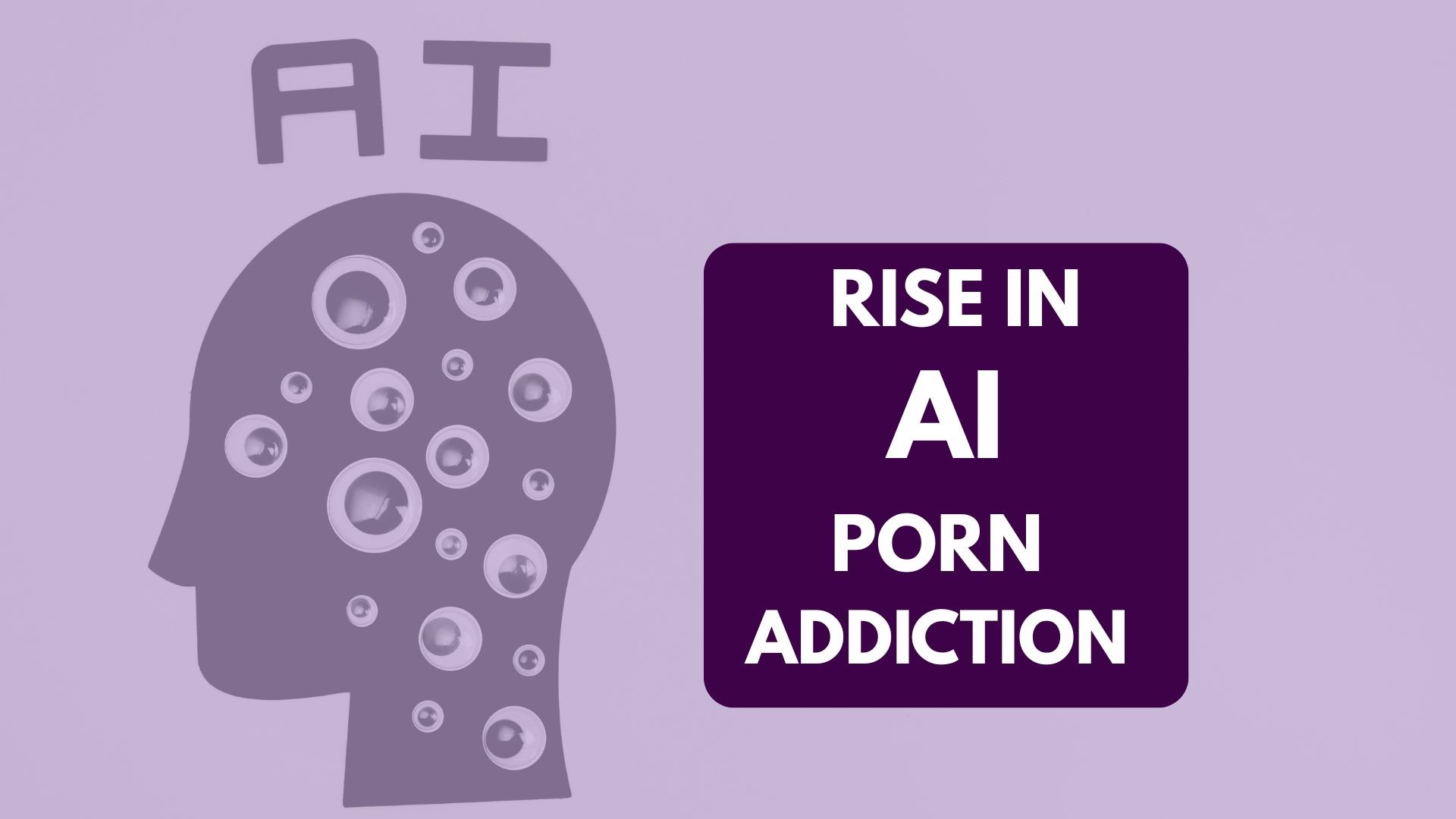Relapse of Porn Addiction: Avoidance Strategies & Advice
Published:
Oct 10, 2024
,
12:03 p.m.
ET
Relapse is unfortunately common during porn addiction recovery, so knowing how triggers can lead to a relapse can help someone develop strategies to address and prevent it. Porn addiction can be difficult to recover from, but with the right resources and support, it is possible. Here we aim to provide insight into porn addiction, the recovery process and how to create a plan to avoid relapse.
What is Porn Addiction? How is it diagnosed?
Currently there is no formal diagnosis in the DSM-5 for porn addiction. Although there is no official criteria for diagnosis to classify porn addiction, it can be identified by uncontrollable, continued sexual behaviors or urges that one is not able to stop, despite potentially wanting to. Not only are the sexual behaviors present, but they negatively impact someone's day to day life, including their mental health, career and relationships.
Both hypersexuality disorder and compulsive porn disorder are terms that have been used interchangeably for porn addiction and may also be seen in research or literature. In 2018 the World Health Organization (WHO) named compulsive sexual behavior (CSB) a mental health disorder, and many of the criteria are behavior seen in porn addiction.
Compulsive sexual behaviors include:
Sexual fantasies, urges and behaviors that occupy large amounts of time
Feelings of guilt, anxiety or depression after acting on sexual urges
Inability to control sexual urges or behaviors
Using sexual behaviors to escape other problems like loneliness or depression
Maintaining healthy relationships is difficult due to sexual urges or behaviors
Continued engagement in sexual behaviors despite negative consequences
Porn addiction and compulsive sexual behavior may involve risky sexual behavior that can lead to physical health concerns, like STDs or unprotected sex. Porn addiction, a symptom of compulsive sexual behavior, may be exacerbated by other mental health issues, such as depression, anxiety or substance abuse.
Understanding the Porn Addiction recovery process
Treating porn addiction can be a complex process and there is no singular approach that is recommended for treatment. Porn addiction treatment should be personalized to an individual and would be recommended by a licensed professional. A porn addiction specialist, like those at Birches Health, would conduct an initial evaluation to learn more about someone’s addiction symptoms and diagnose any co-occurring disorders if necessary.
Porn addiction treatment may involve teaching someone about triggers and how addictions affect the brain. Cognitive behavioral health (CBT) is sometimes used in porn addiction treatment to identify negative behaviors and learn healthy coping mechanisms. Other therapies like group or family therapy may also be recommended. Relapse prevention, outpatient services and having a plan to deal with triggers after treatment is an ongoing part of porn addiction treatment and the recovery process.
How common is porn addiction relapse?
Relapse is very common with porn addiction, one of the largest reasons being that pornography and sexually explicit material are very commonplace in this day and age. Porn is also very easy to access, with minimal effort needed to find porn and view it on any device. Those with porn addiction report relapse being very common in the beginning of their treatment process and that they use porn as a coping mechanism for negative feelings or situations that occur. While relapse is common, there are strategies that can be used as a part of a relapse prevention plan to help minimize the damage of relapse and help someone continue on their path to recovery.

Strategies for avoiding relapse after porn addiction treatment
Relapse in addiction recovery is often seen as an outright failure, when in reality it is a very common part of the long-term recovery process. Having a variety of strategies to help avoid relapse in porn addiction treatment is beneficial when setting up a long-term relapse prevention plan.
Therapeutic support
Therapy should be continued during the recovery process from porn addiction to help avoid a relapse. A therapist can help someone with a porn addiction evaluate their triggers that feed into their addiction and develop coping skills that can be used instead of watching porn. Family or couples therapy may also be beneficial to help repair relationships that may have been harmed due to someone's porn addiction. Joining a mutual support group may also be a beneficial tool to help avoid relapse.
Create a Balanced Life
Being lonely or bored can be a trigger for porn addiction so it can be important to find new interests to pursue during recovery. Discovering a new hobby can be a satisfying and time consuming way to avoid using pornography during down time. Joining a new activity can also be a way to make new connections with people that are not sexual in nature and create bonds with people outside of a porn addiction.
Exercise
Prioritizing one's physical health through physical activity is another way to help avoid relapse. Exercise releases endorphins in the body, the same way that watching pornography does for someone with a porn addiction. By replacing porn with exercise, the brain still experiences an endorphin rush and can help reduce cravings for porn.
Avoid Other Addictions
Trading one addiction for another can be a danger during the recovery process from porn addiction. Someone may feel drawn to use drugs or alcohol to elicit the same “high” they get from watching porn, but this is a dangerous path that may lead to developing another addiction. Avoiding other addictive substances or habits can make avoiding a relapse more attainable.
Porn Blocker Apps
There are specific apps and browser extensions that help restrict access to pornographic sites or material. This can be an easy way to avoid the temptation of watching porn on your phone or computer. Some even come with a community of others who are also looking to reduce their porn consumption and can be used as accountability partners. Some apps include:
BlockerX
BlockerHero
Purity
Covenant Eyes



